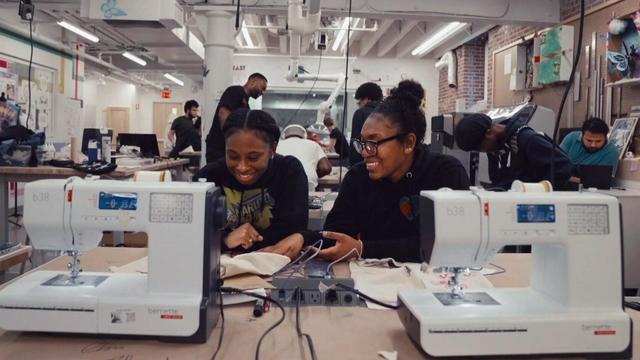In a bold move aimed at curbing distractions and improving the learning environment, Methuen Public Schools have officially banned the use of cellphones within their schools. The decision has sparked widespread discussion among parents, students, and educators, with many praising the initiative as a necessary step towards better academic performance and mental health. Superintendent Brandi Kwong has been vocal about her concerns, labeling cellphones as “addictions” that significantly impact students’ ability to focus and engage in their studies.
The Rising Concern Over Cellphone Use
In recent years, the debate over cellphone use in schools has intensified, with educators increasingly concerned about the negative impact these devices have on students. Studies have shown that excessive cellphone use can lead to various issues, including reduced attention span, lower academic performance, and even anxiety and depression. Superintendent Kwong’s decision to ban cellphones is rooted in these concerns, as she seeks to create a more conducive learning environment for Methuen students.
The Policy Details
Under the new policy, students are required to keep their cellphones in their lockers throughout the school day. This rule applies to all grade levels, from elementary to high school. The policy is designed to minimize distractions during class and encourage students to engage more fully with their peers and teachers. While students can access their phones before and after school, any use during school hours is strictly prohibited.
Addressing the “Addiction” Label
Superintendent Kwong’s characterization of cellphones as “addictions” has resonated with many parents and educators. The term underscores the growing concern that students are becoming increasingly dependent on their devices, to the detriment of their academic and social development. By using this strong language, Kwong aims to highlight the seriousness of the issue and the need for decisive action.
The Impact on Learning
One of the primary motivations behind the cellphone ban is the desire to improve academic outcomes. Studies have consistently shown that cellphone use in class can lead to lower grades and reduced comprehension. By removing this distraction, Methuen schools hope to see an improvement in students’ focus, participation, and overall academic performance.
The Role of Parents
Parents play a crucial role in the success of the cellphone ban. The school district has called on parents to support the policy by reinforcing the importance of limiting cellphone use at home and during homework time. Many parents have expressed support for the ban, recognizing the challenges of managing their children’s screen time and the benefits of a more focused school environment.
Student Reactions
The reaction from students has been mixed. While some students understand the rationale behind the ban and appreciate the increased focus on learning, others have expressed frustration at losing access to their devices during the day. For many students, cellphones are a key part of their social lives, and the ban represents a significant change in their daily routine.
Teacher Support
Teachers have largely welcomed the new policy, viewing it as a necessary step to reclaim the classroom from the distractions of modern technology. Many educators have shared stories of students being more engaged and attentive in class since the ban was implemented. The policy has also made classroom management easier, as teachers no longer have to constantly monitor and confiscate cellphones.
The Mental Health Aspect
In addition to academic concerns, the cellphone ban is also seen as a way to address the mental health challenges associated with excessive screen time. Research has shown that high levels of cellphone use can contribute to anxiety, depression, and other mental health issues among adolescents. By limiting cellphone access during the school day, Methuen schools hope to promote a healthier, more balanced lifestyle for their students.
Balancing Technology and Education
While the cellphone ban is seen as a positive step, it also raises questions about how to balance the benefits of technology with the need to limit distractions. Methuen schools are exploring ways to integrate technology into the classroom in a controlled and educational manner, ensuring that students can still benefit from digital tools without the negative effects of constant connectivity.
The Role of Social Media
Social media is a significant factor in the cellphone debate. Platforms like Instagram, Snapchat, and TikTok are major sources of distraction for students, often leading to decreased attention in class and increased stress. The cellphone ban effectively curtails students’ access to social media during school hours, which many educators believe is a crucial step in reducing distractions and promoting mental well-being.
Preparing Students for the Future
Superintendent Kwong has emphasized that the cellphone ban is not just about immediate academic performance but also about preparing students for the future. By teaching students to manage their time and attention without constant access to their phones, Methuen schools are helping them develop the discipline and focus needed for success in higher education and the workplace.
The Challenges of Implementation
Implementing the cellphone ban has not been without challenges. Some students have attempted to bypass the rules by hiding their phones or using them discreetly. However, the school district has been vigilant in enforcing the policy, with teachers and administrators working together to ensure compliance.
The Long-Term Vision
Methuen Public Schools view the cellphone ban as part of a broader strategy to enhance the educational experience. The district is committed to creating a learning environment where students can thrive academically, socially, and emotionally. The cellphone ban is seen as a critical step towards achieving this vision.
Community Response
The community’s response to the cellphone ban has been generally positive, with many parents, educators, and local leaders expressing support for the policy. There is a growing recognition that while technology plays an important role in modern life, there must be boundaries to ensure that it does not interfere with education.
Looking Ahead
As the cellphone ban continues to be enforced, Methuen schools will be closely monitoring its impact on student performance and well-being. The district is open to feedback and is committed to making any necessary adjustments to ensure that the policy achieves its intended goals.
Potential for Broader Adoption
Methuen’s cellphone ban could serve as a model for other school districts facing similar challenges. As more schools grapple with the issue of cellphone use, Methuen’s experience may provide valuable insights into how to effectively manage technology in the classroom.
The Importance of Clear Communication
Clear communication has been key to the successful implementation of the cellphone ban. The school district has made efforts to keep parents, students, and teachers informed about the policy and its rationale. This transparency has helped build support and ensure that everyone understands the importance of the ban.
The Future of Cellphones in Schools
The debate over cellphones in schools is far from over. As technology continues to evolve, schools will need to find ways to adapt while maintaining a focus on education. Methuen’s cellphone ban is a significant step in this ongoing conversation, highlighting the need for thoughtful policies that balance the benefits and drawbacks of technology.



